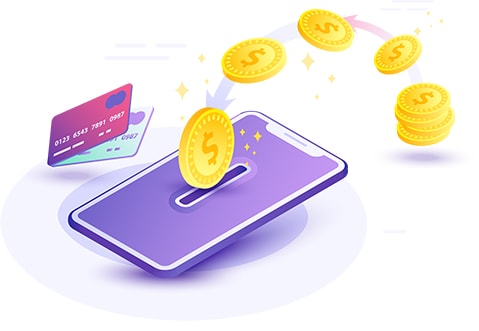Buy Now, Pay Later (BNPL) offerings in the UAE and Legalities Surrounding them
 In these times of economic instability, and as the coronavirus continues to wreak havoc worldwide, buy-now-pay-later (BNPL) solutions are eclipsing credit cards more conveniently and transparently to fund transactions. E-commerce has developed over the last two years, which has aided BNPL's popularity, with the epidemic forcing consumers to shop from behind their screens. Digital buy now, pay later (BNPL) shopping is new to the region, where consumers have typically been wary about paying for items before receiving them.
In these times of economic instability, and as the coronavirus continues to wreak havoc worldwide, buy-now-pay-later (BNPL) solutions are eclipsing credit cards more conveniently and transparently to fund transactions. E-commerce has developed over the last two years, which has aided BNPL's popularity, with the epidemic forcing consumers to shop from behind their screens. Digital buy now, pay later (BNPL) shopping is new to the region, where consumers have typically been wary about paying for items before receiving them.
BNPL is creating the future of digital payments worldwide and in the region. Payment mechanisms and consumer shopping behavior are inextricably linked, with both contributing to the formation of our digital payment landscape. The digital payment market has changed dramatically in recent years, and the expansion of e-commerce has fueled BNPL. In 2020, the phenomenon will become the fastest growing e-commerce payment method globally, and it is expected to account for 9% of all e-commerce payments in EMEA by 2023. As the pandemic raged on, our worlds shifted online, accelerating e-commerce adoption around the world. In fact, in the Middle East alone, customers purchase online 50% more than before the outbreak.
This digital revolution provided an opportunity for e-commerce businesses to adapt, develop, and thrive.
This is where BNPL came in, providing the ability to add value for consumers and merchants in the e-commerce business at a time when it was most required. Naturally, the idea of deferred payments grew appealing during the pandemic due to widespread financial insecurity. With BNPL platforms, consumers could continue to buy but now have the option of paying in installments to preserve their personal cash flow at no additional expense. Furthermore, the concept alleviated the burden of cash-on-delivery (COD) payments, which amounted to more than 60 percent of e-commerce sales in the region before the epidemic.
BNPL effectively handles today's most familiar consumer difficulty: the need for rapid pleasure, which is hampered by the inability to pay in advance. BNPL creates a balance between the desire for immediate purchasing and the necessity for long-term budgeting. Hence, customers spend more but feel much better about it because they can extend the payment over time with no interest or fees. This pattern is directly influencing conversion and increasing basket sizes at the checkout. As a result, consumers prefer merchants who accept BNPL payments.
The expense of BNPL is borne by retailers, who see considerable improvements in conversion rates and average order values. Retailers pay a premium over a standard payment gateway because BNPL positively impacts the bottom line and many repeat customers.
It essentially empowers the customer with interest-free and fee-free installment arrangements that are entirely transparent. Consumers appreciate this service because it promotes financial freedom, which is especially important in this decade of economic insecurity. Furthermore, many consumers use BNPL apps as budgeting tools to manage payments over time.
 The apps aim to empower customers by allowing them to buy only what they can genuinely afford and avoid falling into debt (as customers are capped to specific amounts and number of transactions). BNPL caters to the shopping habits of the younger generation. As a result, more people turn to it as their preferred payment method. More than 60% of Millennials do not have credit cards in their names. Consumers in their twenties and thirties are crucial audiences for BNPL platforms. They make money and want to spend it, but they are also becoming more knowledgeable and taking budgeting safeguards. As a result, around 67% of Millennials currently use BNPL services. These platforms not only resonate with the consumer's personal experience, but they also serve as a mechanism to fuel e-commerce growth in the region and assist merchants in surviving, if not thriving, in the face of a pandemic.
The apps aim to empower customers by allowing them to buy only what they can genuinely afford and avoid falling into debt (as customers are capped to specific amounts and number of transactions). BNPL caters to the shopping habits of the younger generation. As a result, more people turn to it as their preferred payment method. More than 60% of Millennials do not have credit cards in their names. Consumers in their twenties and thirties are crucial audiences for BNPL platforms. They make money and want to spend it, but they are also becoming more knowledgeable and taking budgeting safeguards. As a result, around 67% of Millennials currently use BNPL services. These platforms not only resonate with the consumer's personal experience, but they also serve as a mechanism to fuel e-commerce growth in the region and assist merchants in surviving, if not thriving, in the face of a pandemic.
This percentage will only rise in the coming years.
Popular BNPL platforms in the Middle East include Saudi Arabia's Tamara and the UAE's Spotii, Tabby, and Postpay. These applications are becoming more popular. Most of these companies in this sector are in the early stages of development, with several starting last year.
Islamic conventions forbid charging interest on loans, discouraging specific Middle Eastern consumers from using credit cards, and ensuring that BNPL platforms are distinct from the concept of credit cards. Because BNPL enterprises typically profit through merchant charges and late fees rather than interest payments, they skirt the legal definition of credit - and credit rules. However, the sector has come under examination, with authorities in the United Kingdom and abroad evaluating or strengthening regulations. Some regulators argue that technology businesses offering BNPL should be regulated similarly to traditional lenders.
It is unclear how Middle Eastern regulators plan to respond.
 As the current legalities for Buy Now Pay Later is unclear, we can depend on existing credit laws in the UAE. BNPL is simply credit and can be treated the same when considering the laws that relate to it. In the UAE, jurisdiction is differentiated by financial free zone and onshore areas. In free zones such as DIFC and ADGM, where most fintech startups are located, the law is governed by the Freezone authorities themselves. The Dubai Financial Services Authority ("DFSA") oversees financial services done in or from the DIFC. In ADGM, the Financial Services Regulatory Authority ("FSRA") regulates financial activity. For Onshore economic activities, the federal laws of the UAE apply. The UAE Central Bank ("UAECB"), Securities and Commodities Authority ("SCA"), and Insurance Authority ("IA") supervise financial services done in or from the UAE Onshore.
As the current legalities for Buy Now Pay Later is unclear, we can depend on existing credit laws in the UAE. BNPL is simply credit and can be treated the same when considering the laws that relate to it. In the UAE, jurisdiction is differentiated by financial free zone and onshore areas. In free zones such as DIFC and ADGM, where most fintech startups are located, the law is governed by the Freezone authorities themselves. The Dubai Financial Services Authority ("DFSA") oversees financial services done in or from the DIFC. In ADGM, the Financial Services Regulatory Authority ("FSRA") regulates financial activity. For Onshore economic activities, the federal laws of the UAE apply. The UAE Central Bank ("UAECB"), Securities and Commodities Authority ("SCA"), and Insurance Authority ("IA") supervise financial services done in or from the UAE Onshore.
As time goes on, it becomes clear that BNPL is here to stay. Key global corporations have expressed interest in the regional market and local players. As the digital payment environment evolves, BNPL will become the standard across e-commerce platforms. The Buy Now, Pay Later revolution is here, and it's time for consumers and merchants to participate in and reap the rewards.
 Русский
Русский
 English
English 官话
官话 português
português عربي
عربي
 Türk
Türk 






.jpg)






